21 Jun 2020
The coronavirus outbreak has brought massive and sudden change to the veterinary profession. But practices are adapting to a new normal and lessons are being learned every day, as the team as Willows Veterinary Centre and Referral Service in the West Midlands is discovering...

Image © Willows
Staff: full-time vets 55 • registered veterinary nurses 70 • practice administrators 20
Latest data shows that coronavirus has impacted on veterinary practice revenues in the UK harder than anywhere else in the world.
With footfall slashed due to Government restrictions and vets still sticking to the emergencies-only guidance, hundreds of practices have been forced to furlough staff and work with skeleton teams just to keep some revenue coming in through the door.
However, the Mars-owned Linnaeus Group – of which Willows is part – has not furloughed staff to the same scale as other businesses. For Willows, this has meant that, despite seeing a fall in demand for many of the 14 different referral services on offer, the practice has been able to adapt swiftly to meet increased demand for other services, such as out-of-hours, and emergency and critical care.
With a full complement of more than 200 staff to call on – including 55 vets – clinical director Toby Gemmill certainly has more pieces on the board, but making it all work has still been a complicated game to play.
He said: “We have had incredible support from both Mars and Linnaeus throughout the pandemic.
“That has allowed us to maintain an agile and flexible approach, so within three days of the lockdown being announced, we had moved from being a business-as-usual referral centre to becoming a pet accident and emergency service with a solid, specialist, multidisciplinary service for clients and referring vets.
“There have been a number of practices that have furloughed their staff and have reached out to us for help.
“As we have depth across disciplines and a large team to call on, we have been able to support them in their time of need.”
Willows was established in 1989 around an orthopaedic and ophthalmology referral service, and in 2009 the business moved to new premises in Solihull and became a multidisciplinary hospital – adding internal medicine, soft tissue surgery and neurology, as well as a number of other disciplines.
The practice moved out of independent hands in 2015 when it was acquired by Linnaeus, which was, in turn, bought by Mars Veterinary Health Group two years later.
In 2018, an extension was added to the hospital, which included a radioactive iodine unit for cats and a suite of other procedure rooms.
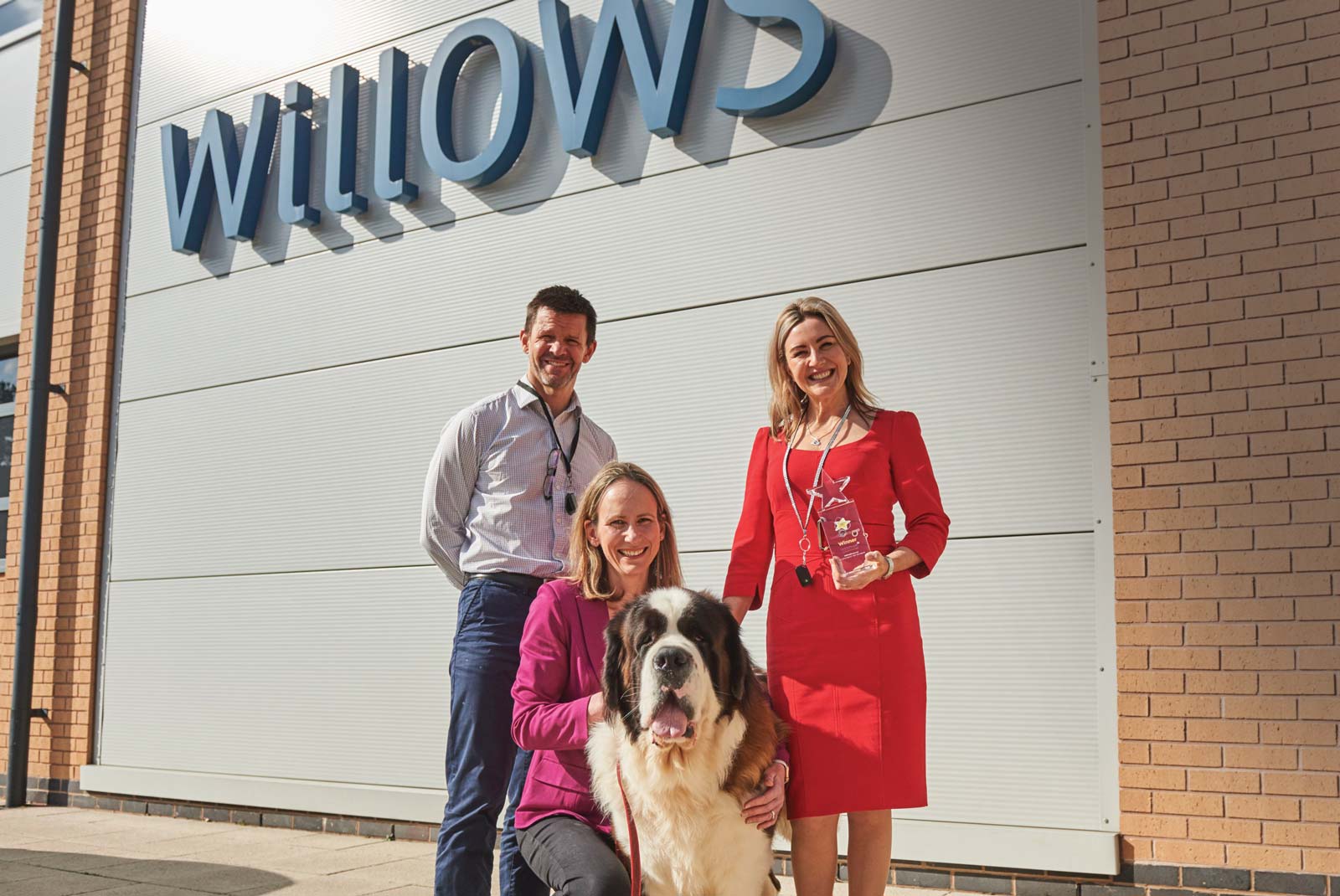
The practice has clearly developed at a decent pace by any standards, so was better placed than many to respond to the onslaught of coronavirus.
Toby added: “It’s been a tumultuous time for everyone in the veterinary world.
“We went from almost normal practice with some social distancing a couple of months ago, to a completely different business model, with the need to keep our team safe and the overriding desire to be there as an emergency and urgent service for those referring vets who needed us.
“Part of that rapid evolution included introducing video consults in about a 48-hour period, which would normally have sat on the to-do list for significantly longer.
“There are, of course, a lot of challenges in this; number one, keeping our staff safe from coronavirus, so obviously we stopped clients entering the practice at the outset, which is actually relatively easy to manage, although everything takes a little bit longer as you have to go out to the car park and collect the patients, and bring them inside.”
With the relevant clinicians and support teams to hand, Willows has been able to take significant steps quickly to cope with the constantly evolving situation and keep everyone as safe as possible.
The nursing team has been split into two teams, working three days on, three days off, to try to keep fewer people in the hospital and enable more social distancing, while continuing to offer a flexible and full service.
Splitting the vets in a similar way, however, was not possible, as Toby explained: “To do a complete cut down the middle wasn’t possible, as we have 14 different specialist disciplines, with varying sized teams. Of course, like everyone, the vet team has experienced sporadic need for individual isolation for varying circumstances.
“However, we adapted the rota to follow RCVS guidelines, effectively running as an emergency and urgent service only.
“That obviously altered our caseload for the first couple of weeks by quite an amount; but, since then, as more non-urgent cases requiring specialist expertise became more urgent, inevitably the case load has accelerated again.
“As part of this, it has felt great to be able to support our existing referring practices and new referring vets.”
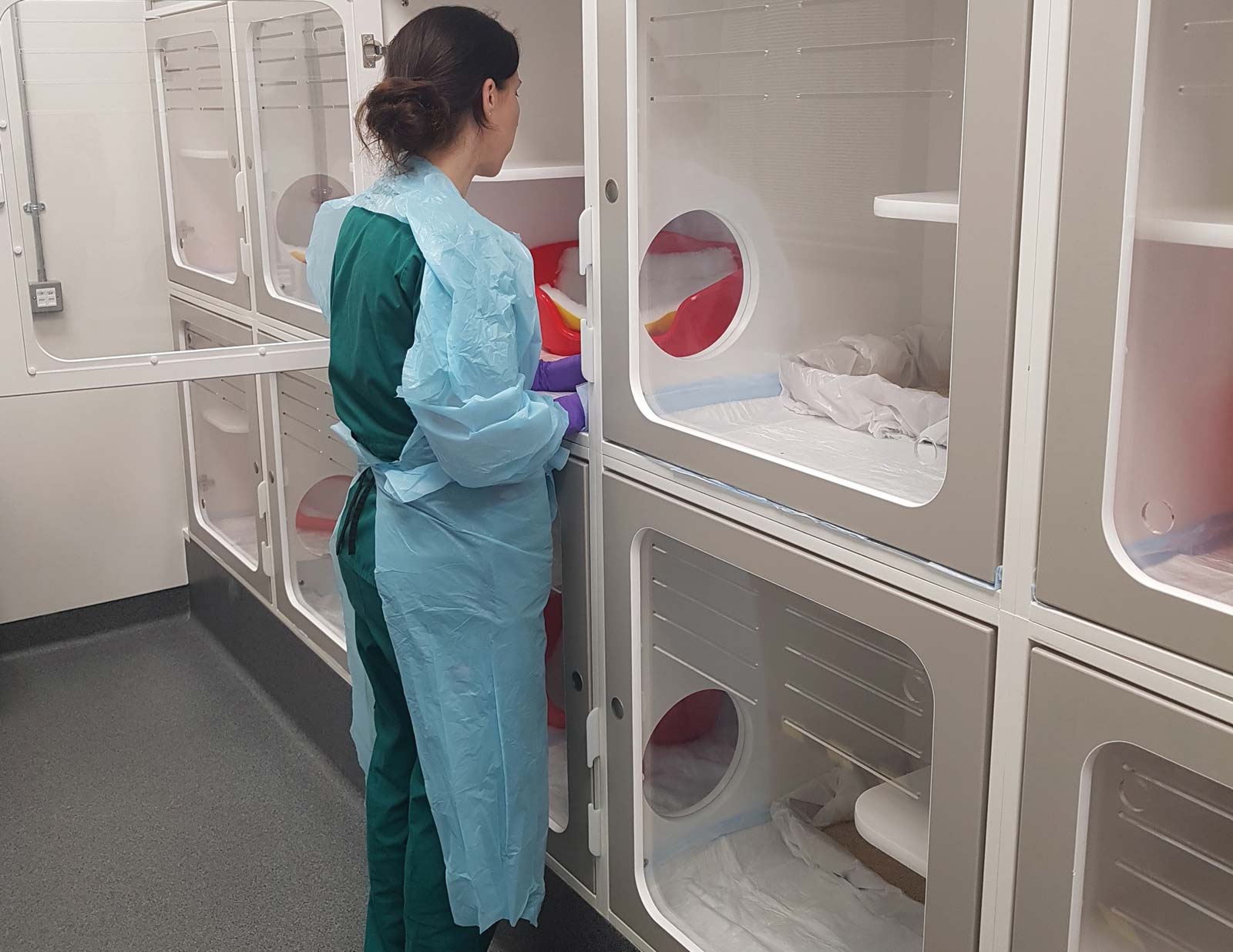
Another big change has been the huge increase in demand for Willows’ OOH service, which had already been growing healthily before COVID-19.
Toby added: “Our emergency service caters for more than 25 practices and has really grown over the past couple of months, as more practices need our support.
“It’s not just those regular practices – there are lots of other practices that either had to close sites or are not able to offer their own OOH service because they’ve understandably experienced staffing impacts due to COVID.
“So, we’ve helped out as much as possible by seeing the cases referred to us. This has naturally put pressure on our OOH team, who have coped amazingly well and I’m very proud of them all.
“Part of the reorganisation of the nursing rotas was not only to split teams to keep social distancing and keep people safe, but also to increase the OOH resource from the nursing changes.
“Credit to our nurses – they’ve been amazing in embracing what has been a huge temporary change to their normal way of working almost overnight. They were super helpful with everything.
“We’re now gradually starting to move back towards a more normal working pattern as the lockdown restrictions are eased.”
A group of 10 emergency vets who are also a part of Willows’ rotating internship programme run the emergency service, which is headed by an emergency critical care (ECC) specialist. The practice has plans to expand its ECC specialist service in the autumn.
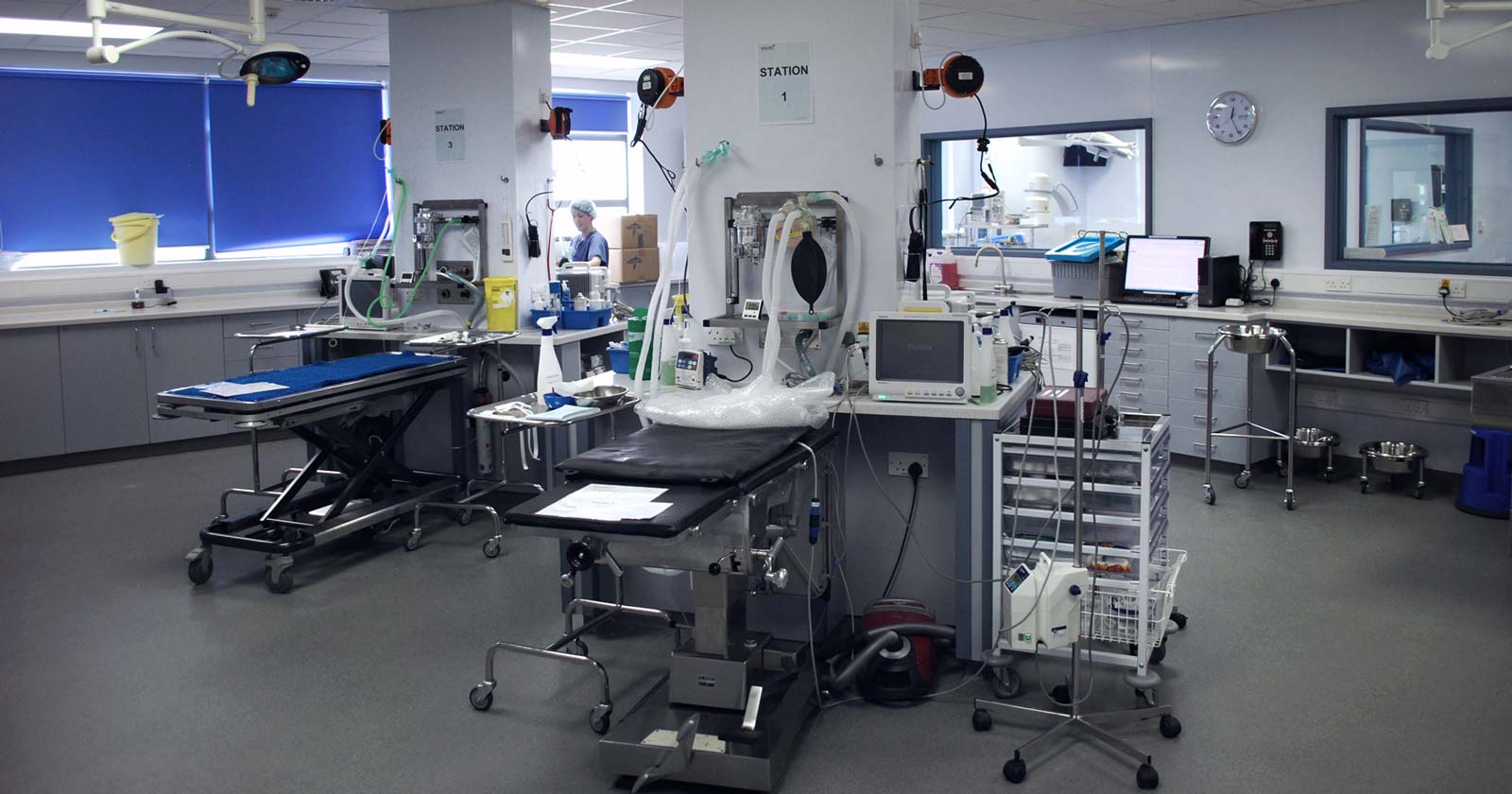
It is clear Willows remains a hub of activity, despite the many restrictions placed on its team and clients during the past three months of lockdown.
But keeping everyone safe and well remains the number one priority – something made a little easier by the design and sheer size of Willows’ impressive hospital site. Toby said: “It’s a big practice and there is a lot of space at Willows, so even the simplest things, such as the extra-wide corridors, make a difference to the safety of our team at times like this.
“Of course, if you have something serious, such as an animal that has had a cardiac arrest and you had to do CPR, people are close to each other in those instances and we have tight policies in place with appropriate usage of personal protective equipment to protect team members.”
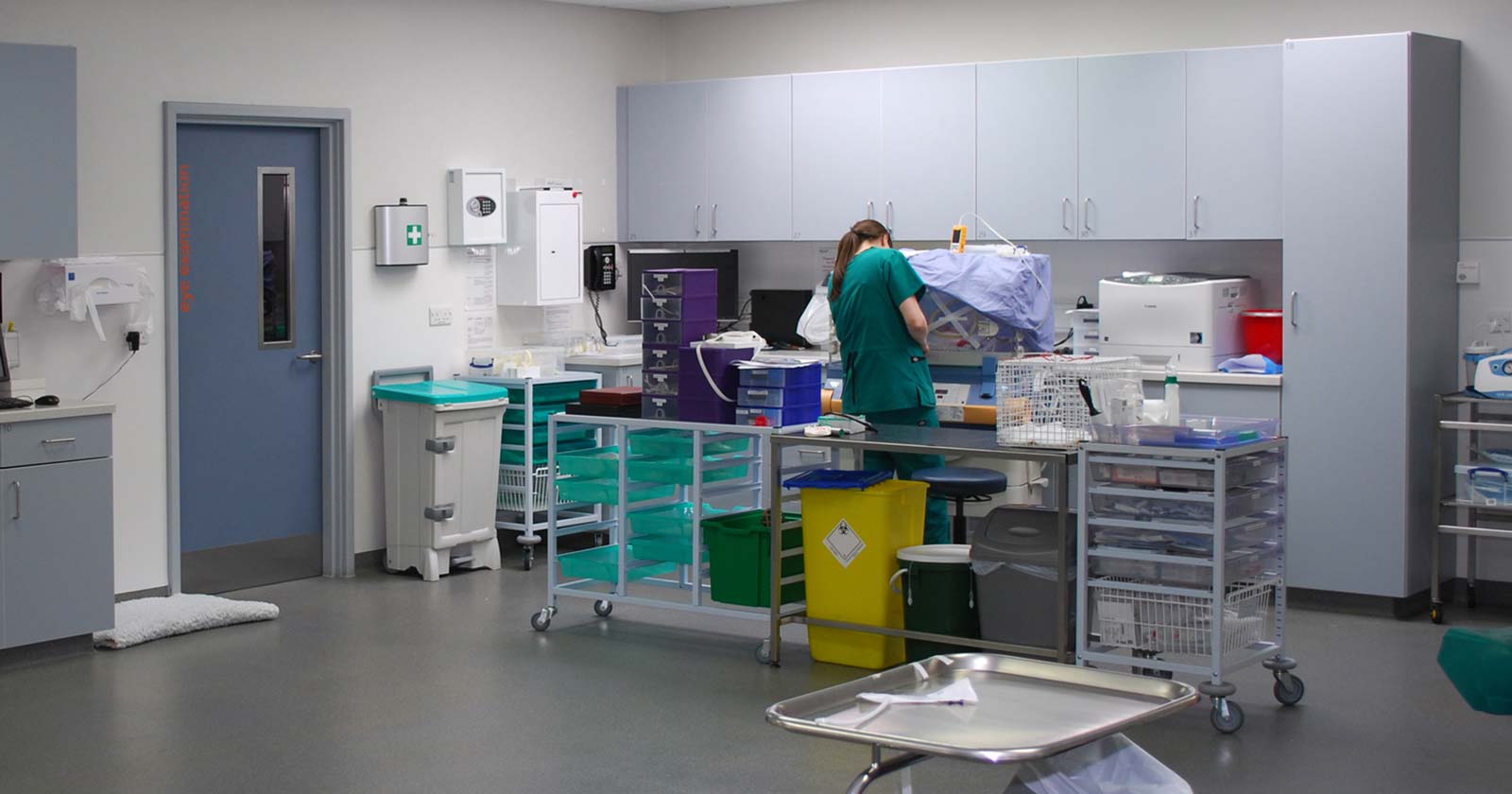
One of the main ways practices both large and small have adjusted to the restrictions imposed during lockdown has been using video consults, which Willows introduced within a matter of hours after the lockdown was announced.
Toby said: “We see a lot of clients referred to us from many hours’ drive away and it’s difficult for them to return for check-ups, so we had been thinking about video consults for some time.
“We quickly introduced them in response to the lockdown, with the rates we charge clients significantly lower than a normal face-to-face consultation as we obviously cannot examine a patient in the same way.
“That’s on both the first opinion and referral side, and, in a small number of cases so far, it hasn’t been necessary to see those patients, so that’s at least been good for avoiding unnecessary travel and, importantly, putting our clients’ minds at rest during what has been a very tough time.
“In introducing these consultations, we explained to our clients that during lockdown we would be unable to see them in person, but could provide a vet for an appropriate length of time to consult with them using a video.
“The clients and the vets who have referred to us have been amazing, so I would like to thank every client and vet who has chosen Willows for being so understanding of a very difficult situation. It feels good to be able to help in their times of worry.”
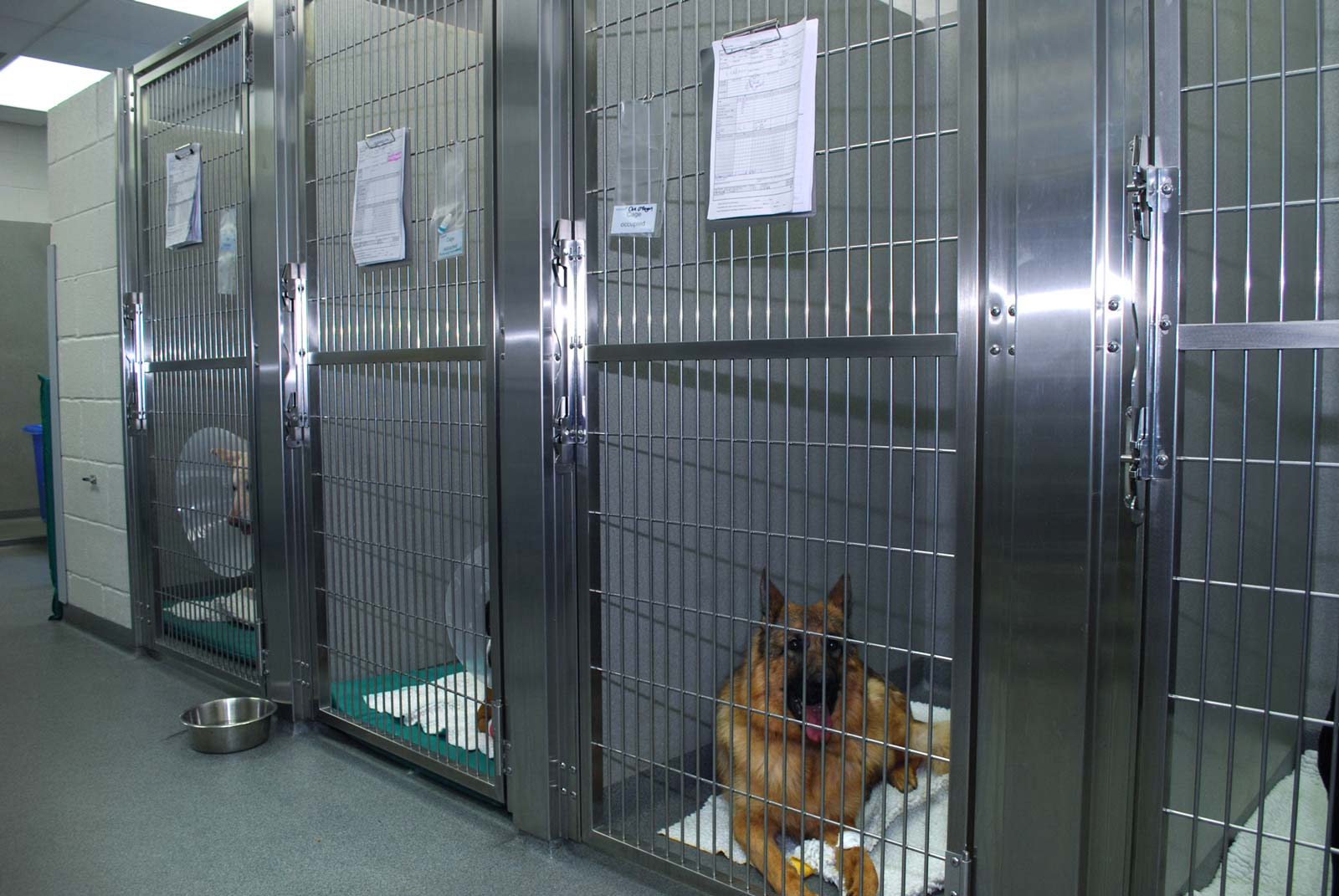
As well as helping support local practices, Willows has been doing its bit to support the NHS by donating equipment to the local hospital trust, as well as offering free CPD to the profession.
Toby explained: “People have an appetite for online CPD at the moment, so where our specialists have had a little bit more time on their hands from not taking part in cancelled roadshows and international events, we encouraged everyone to write both lectures and webinars.
“We’re now putting out three free webinars every week and that will continue for the rest of this year to help the profession, which also helps us to build relationships, setting us up for a post-coronavirus recovery.
“Like everyone, we are having to react and adapt daily and weekly, although a new norm is on the horizon of being established.
“This will end at some point and if we want to have a viable business at the end of it, we want to be able to position ourselves as strongly as possible to come out of it in 3 months, 6 months or 12 months’ time, whenever it might be, with the safety of our team the absolute priority.”